Travelling with your feline friend can be a rewarding but sometimes stressful experience, both for you and your cat. While some cats take to travel quite naturally, others may find the experience overwhelming, leading to stress and anxiety. Understanding the options for sedating your cat can be crucial in ensuring a smooth and safe journey for all involved. This article aims to guide you through the complexities of cat sedation, helping you make informed decisions for your pet’s well-being.
Why Consider Sedation for Cats?
Sedation is generally considered when a cat shows signs of extreme stress or anxiety during travel. Symptoms may include excessive meowing, panting, or even aggressive behaviour. In some cases, the stress can lead to health issues, making sedation a necessary precaution. It’s essential to weigh the pros and cons and consult a veterinarian to determine if sedation is the best course of action for your cat. Read this article for more info on the sedation of Cats for travel or alternatively consult with PETport.
Types of Sedatives for Cats
When it comes to sedating your cat for travel, there are several types of sedatives that veterinarians may recommend. Each has its own set of characteristics, and it’s crucial to consult with a veterinarian to determine which is most suitable for your cat.
- Diazepam (Valium): This is a benzodiazepine that is often used for its calming effects. It works by enhancing the effect of neurotransmitters in the brain to reduce anxiety and induce a state of calm. However, it’s essential to note that Diazepam can interact with other medications and is not suitable for cats with liver issues.
- Acepromazine: This is a phenothiazine tranquillizer that is widely used in veterinary medicine. It has a sedative effect and also works as an anti-emetic. However, it should be administered cautiously as it can lower blood pressure and has a long-lasting effect.
- Gabapentin: Originally developed for treating seizures and neuropathic pain, Gabapentin has calming effects that can be beneficial for anxious cats. It’s often used for cats that get stressed easily due to its mild sedative effect and lower risk of adverse reactions.
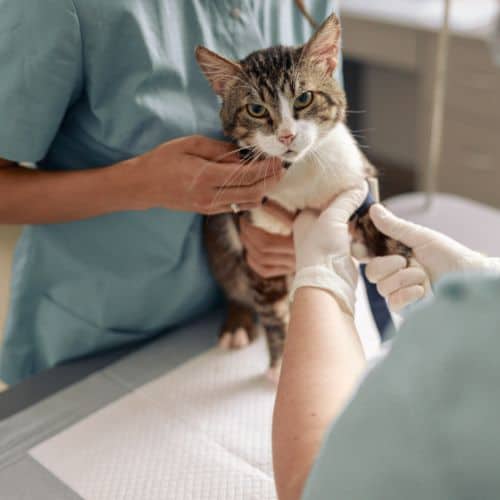
Pros and Cons of Sedating Cats
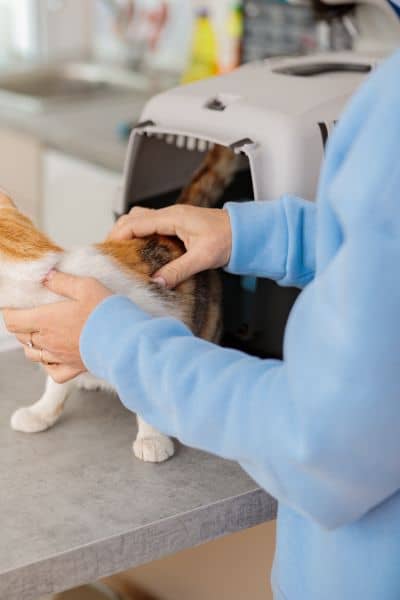
Benefits of Sedation
- Reduced Anxiety: One of the most significant advantages of sedation is the reduction of stress and anxiety. Travel can be a stressful experience for cats, and sedatives can help them relax, making the journey more comfortable for both the pet and the owner.
- Easier Handling: A sedated cat is generally easier to manage, especially during long journeys or when multiple modes of transport are involved. This can be particularly beneficial in situations where the cat needs to be confined for an extended period.
Risks and Potential Side Effects
- Adverse Reactions: Like any medication, sedatives come with the risk of adverse reactions. These can range from mild symptoms like lethargy to severe complications like respiratory distress.
- Respiratory Issues: Some sedatives can depress the respiratory system, leading to breathing difficulties. This is especially risky for cats with pre-existing respiratory conditions.
Alternatives to Sedation
If you’re hesitant about sedating your cat, there are alternatives to consider:
Non-Pharmaceutical Options
- Pheromone Sprays: Products like Feliway mimic natural feline pheromones and can help calm your cat. These sprays can be applied to the cat’s bedding or carrier.
- Comfort Items: Bringing along your cat’s favourite toy or blanket can provide a sense of familiarity and comfort. The scent and texture can help ease anxiety during travel.
Natural Remedies
- Chamomile: This herb is known for its calming properties. Some pet owners use chamomile tea or supplements to calm their cats. However, it’s crucial to consult your vet before trying any natural remedies to ensure they’re safe and appropriate for your pet.
By understanding the types of sedatives available, their pros and cons, and the alternatives, you can make an informed decision about whether sedation is the right option for your cat during travel. Always consult with PETport and our expert travel veterinarians to ensure the safest and most comfortable journey for your feline friend.
How to Avoid Sedating Your Cat When Travelling
Tips and Tricks for a Stress-Free Journey
- Gradual Acclimatisation: Before the trip, get your cat used to its carrier by placing treats or toys inside.
- Trial Runs: Consider taking short drives with your cat to help it get accustomed to the motion and sounds of a vehicle.
- Familiar Objects and Environment: Bringing along familiar objects like your cat’s blanket, toy, or even a piece of your clothing can help create a comforting environment. The familiar scent can significantly reduce stress levels.
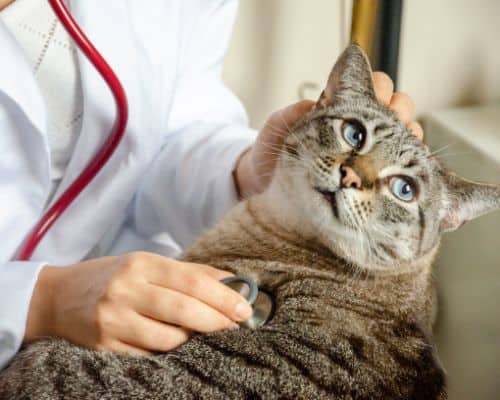
Should You Consider Sedation for Your Cat?
Factors to Consider
- Length of Journey: Longer trips may necessitate sedation, especially if your cat is prone to anxiety.
- General Health: Cats with certain medical conditions may not be suitable candidates for sedation.
- Age: Older cats or very young kittens may react differently to sedatives.
- Past Travel Experience: If your cat has previously shown extreme stress or discomfort while travelling, sedation may be considered.
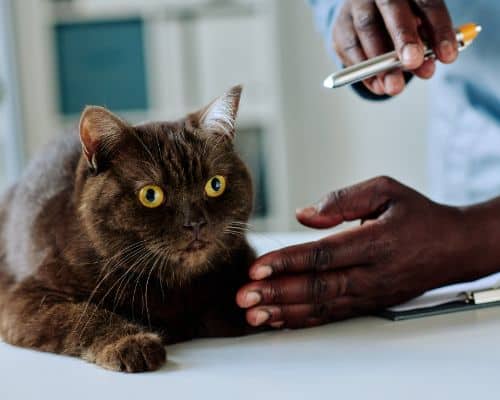
When Sedation Should Be a Last Resort
- Other Calming Methods: Always try non-pharmaceutical methods of calming your cat first, such as familiar objects or pheromone sprays.
- Veterinarian Consultation: Only opt for sedation after a thorough consultation with a veterinarian who can assess the specific needs and risks for your cat.
- Health Risks: Sedation can have side effects and should be avoided if your cat has certain health issues.
- Short Journeys: For shorter trips, the risks of sedation may outweigh the benefits.

By taking these factors into account, you can make a more informed decision about whether sedation is the right option for your cat during travel. Always consult with PETport and our expert travel veterinarians for tailored advice.
When Do I Need to Sedate a Cat for Travel?
Deciding to sedate your cat for travel is a significant decision that should not be taken lightly. Here are some specific circumstances where sedation may be advised:
Long-Haul Flights
- If you’re travelling internationally or across multiple time zones, the extended period of confinement and unfamiliar environment may cause extreme stress for your cat. In such cases, sedation could be considered to make the journey more comfortable for your pet.
Previous Traumatic Travel Experience
- If your cat has had a particularly bad experience while travelling in the past, such as panic attacks or extreme distress, sedation may be advised for future travel to prevent a recurrence of such incidents.
Medical Conditions
- Some cats have medical conditions that can be exacerbated by the stress of travel. In these instances, sedation may not only be beneficial but medically advisable. Always consult your veterinarian for a thorough evaluation.
Aggressive or Unmanageable Behaviour
- If your cat tends to become aggressive or unmanageable when stressed, sedation may be necessary for the safety of both your pet and the people around them.
Veterinarian’s Recommendations
- Sometimes, despite all other considerations, your veterinarian may recommend sedation based on a comprehensive health check-up and behavioural assessment of your cat.
Consult with PETport and Our Expert Travel Veterinarians
When considering sedation for your cat, it’s crucial to seek professional advice. At PETport, we work closely with expert travel veterinarians who can provide tailored advice based on your cat’s medical history, age, and specific needs. During a consultation, you can expect a thorough examination of your cat and possibly some tests to rule out any underlying health issues that could complicate the use of sedatives. This step ensures that if you do opt for sedation, it’s done in the safest manner possible for your feline companion.

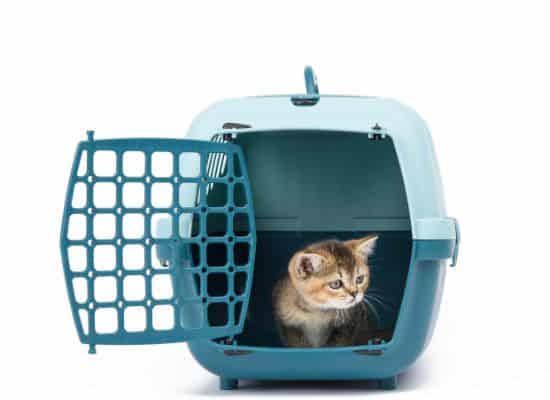
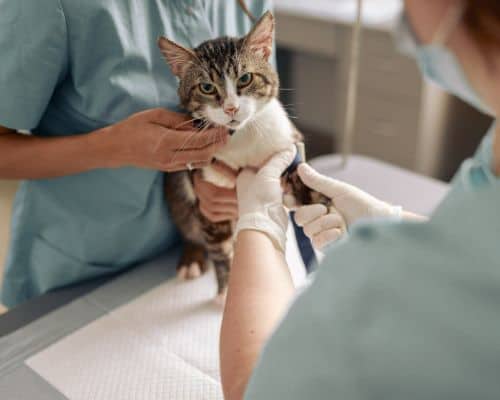
FAQ Section
Is it safe to sedate my cat for travel?
While sedation can be safe when administered correctly, it’s essential to consult with a veterinarian to assess your cat’s health and suitability for sedation.
What are the side effects of sedating my cat?
Side effects can range from mild drowsiness to more severe reactions like respiratory distress. Always consult a veterinarian for a complete list of potential side effects based on the specific medication recommended.
Are there natural alternatives to sedation?
Yes, there are natural remedies like pheromone sprays and herbal supplements that can help calm your cat. However, their effectiveness varies from cat to cat.
How long does the sedative effect last?
The duration of the sedative effect depends on the type of medication used and your cat’s metabolism. Consult your veterinarian for specific information.
Can I sedate my cat myself?
It’s strongly advised to consult a veterinarian for proper dosage and administration. Incorrect sedation can lead to severe complications.
Is sedation necessary for short trips?
Generally, sedation is not recommended for short journeys. Alternative calming methods should be considered first.
What should I do if my cat reacts poorly to the sedative?
If you notice any adverse reactions, contact your veterinarian immediately for guidance on how to proceed.
Can kittens be sedated for travel?
Sedation is generally not recommended for very young or elderly cats. Always consult your veterinarian for age-specific advice.
Can I feed my cat before administering the sedative?
It’s generally advised to fast your cat before sedation to reduce the risk of vomiting. Consult your veterinarian for specific guidelines.
What preparations should I make before sedating my cat for travel?
Ensure you have a comfortable carrier, familiar items for your cat, and all necessary medical records. Consult your veterinarian for a comprehensive list of preparations.


